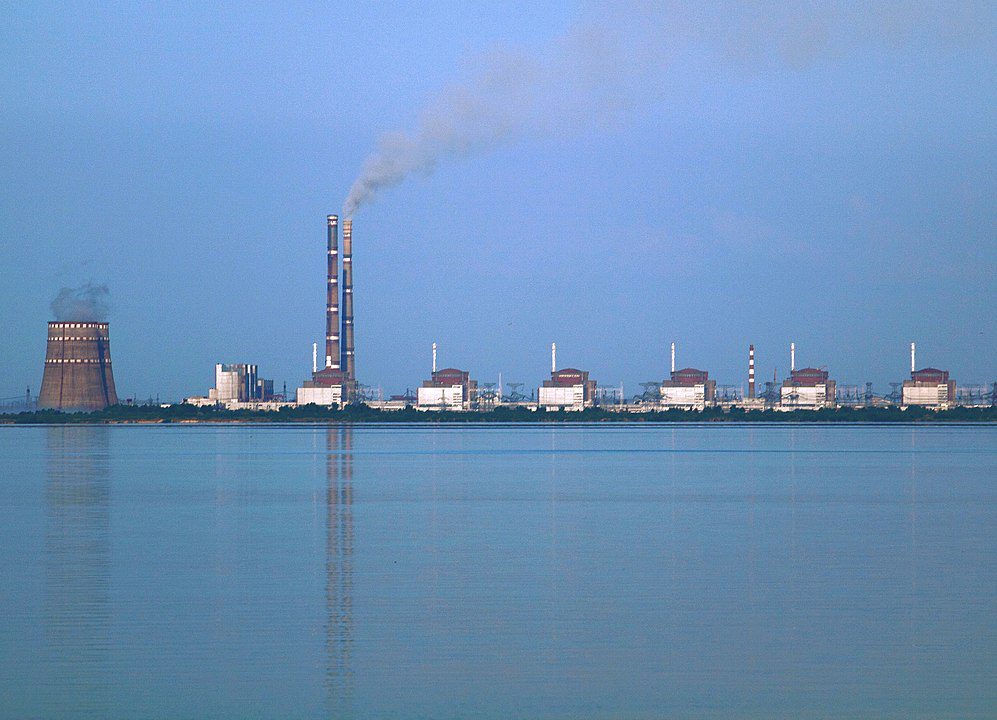
U.N. Secretary-General António Guterres will be meeting with Ukrainian President Volodymyr Zelensky and Turkish President Recep Tayyip Erdoğan in the west-Ukrainian city of Lviv on Thursday.
A spokesman said an urgent meeting had been called amidst increasing security concerns over the Zaporizhzhya Nuclear Power Plant (ZNPP), Reuters reports. The meeting would also serve as an occasion for finding a political off-ramp for the grinding conflict.
The Zaporizhzhya facility, which lies to the south of Ukraine, has been under Russian control since February 24th, yet it is still operated by Ukrainian technicians. As previously reported by The European Conservative, earlier this month both sides hurled accusations at each other over the facility and its surrounding area’s shelling.
The International Atomic Energy Agency (IAEA) deemed the situation to pose a high risk for nuclear disaster, calling it “the latest in a long line of increasingly alarming reports” which indicates that “every principle of safety has been violated one way or the other.”
It promptly made known it plans to send an IAEA mission to the site, so as to help “stabilize the nuclear safety and security situation there.” All parties involved, including the U.N., Ukraine, and Russia, were ostensibly open to facilitating such a mission. However, Russia has put certain conditions in place.
According to Igor Vishnevetsky, Deputy Director of the Department for Non-Proliferation and Arms Control at the Russian Foreign Ministry, any trip by a delegation through Kyiv would have to move “across the contact line,” which would be “very dangerous,” he told reporters on Monday.
Citing the “heterogeneous” composition of the Ukrainian armed forces, he feared that “these people will be ready to commit any provocation,” and that in that case, “anything could happen” to the IAEA delegation. Though not made explicit, it is assumed that by “heterogeneous” people, Vishnevetsky is referring to the neonazi element within Ukraine’s military.
He instead proposed that a route, chosen by Russia, with security provided by Russia, would be the optimal solution. “Ukraine will not provide anything,” he was quoted as saying.
Vishnevetsky was also wary about possible attempts to demilitarize the area, which might involve putting U.N. forces on the ground—something Kyiv, presumably to pause the conflict there allowing for additional military equipment from its allies to come in, has been angling for.
He said the IAEA mission had no such mandate and could only deal with the “fulfillment of IAEA guarantees.” He added that it only “checks whether nuclear material is used at the plant for peaceful purposes,” concluding that anything else is “not the responsibility of the agency.”
After his Thursday meeting in Lviv, Guterres, who earlier had telephoned Russian Defense Minister Sergei Shoigu about the safety conditions at Zaporizhzhia, will visit the Black Sea port of Odessa.
Last month, under a deal brokered by the U.N. and Turkey, three Black Sea ports were unblocked. The deal allowed hundreds of thousands of tonnes of Ukrainian grain to be shipped, bringing relief to those regions hit hardest by the global food crisis.
On Saturday, Guterres will be attending a meeting at the Joint Coordination Center in Istanbul, where Russian, Ukrainian, Turkish as well as fellow U.N. officials are overseeing further exports of Ukrainian grain and fertilizer.
